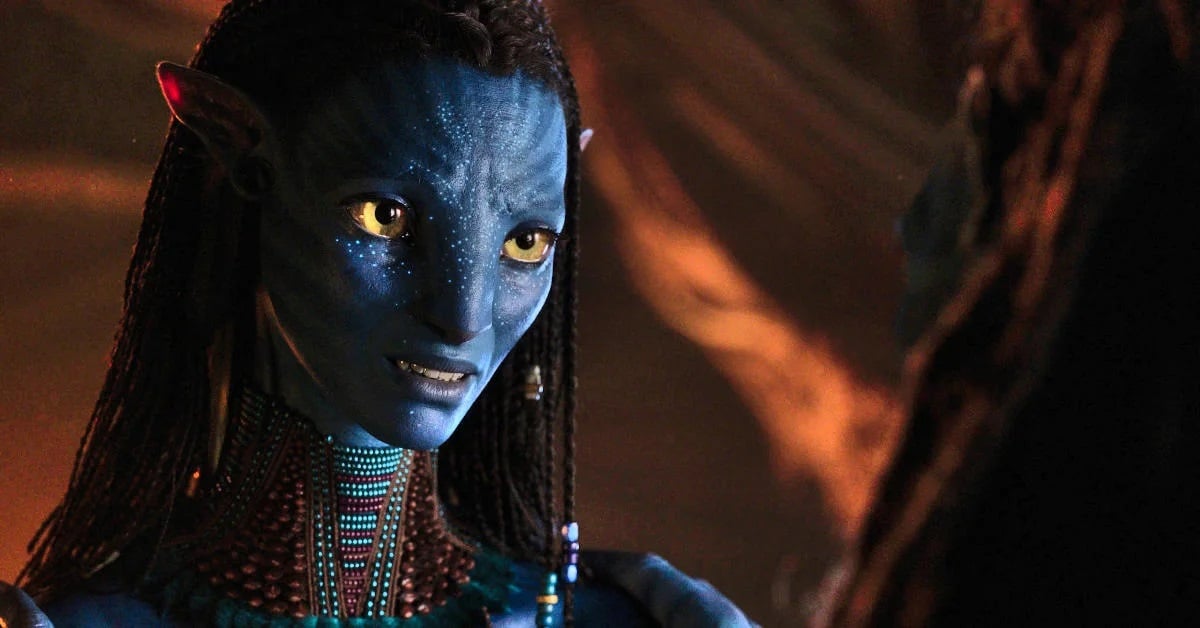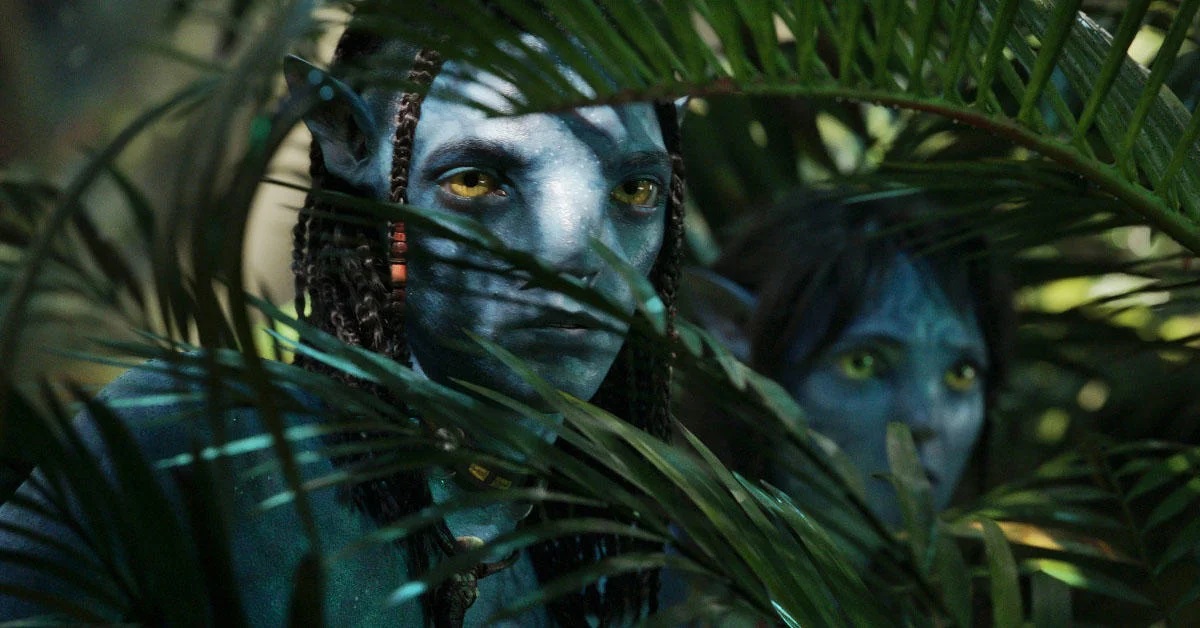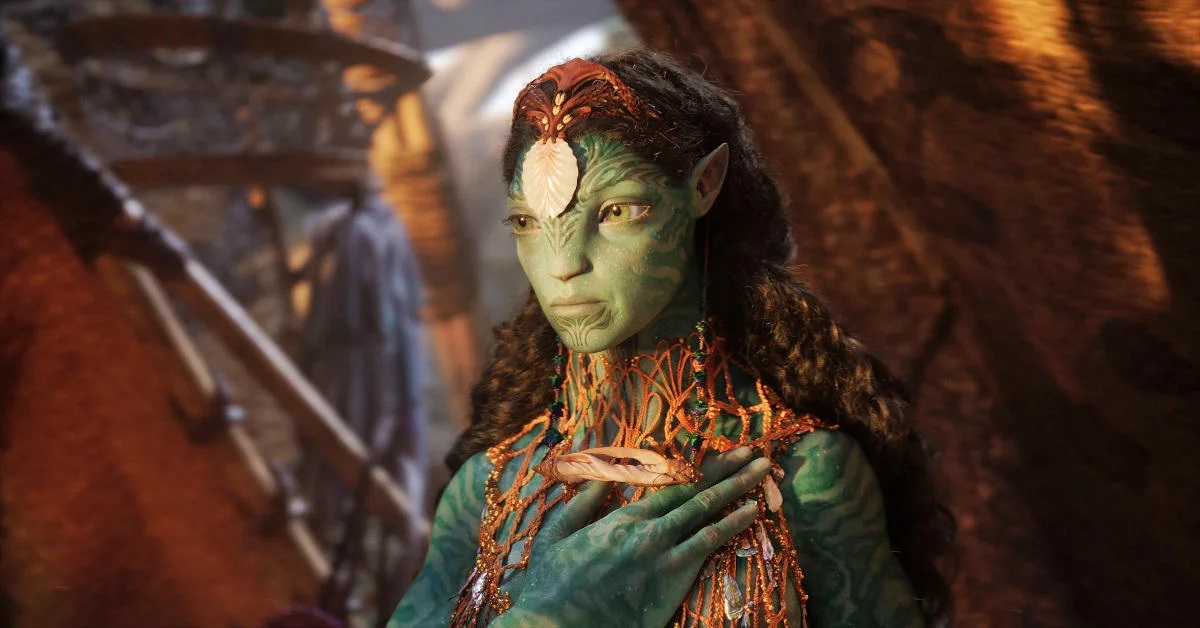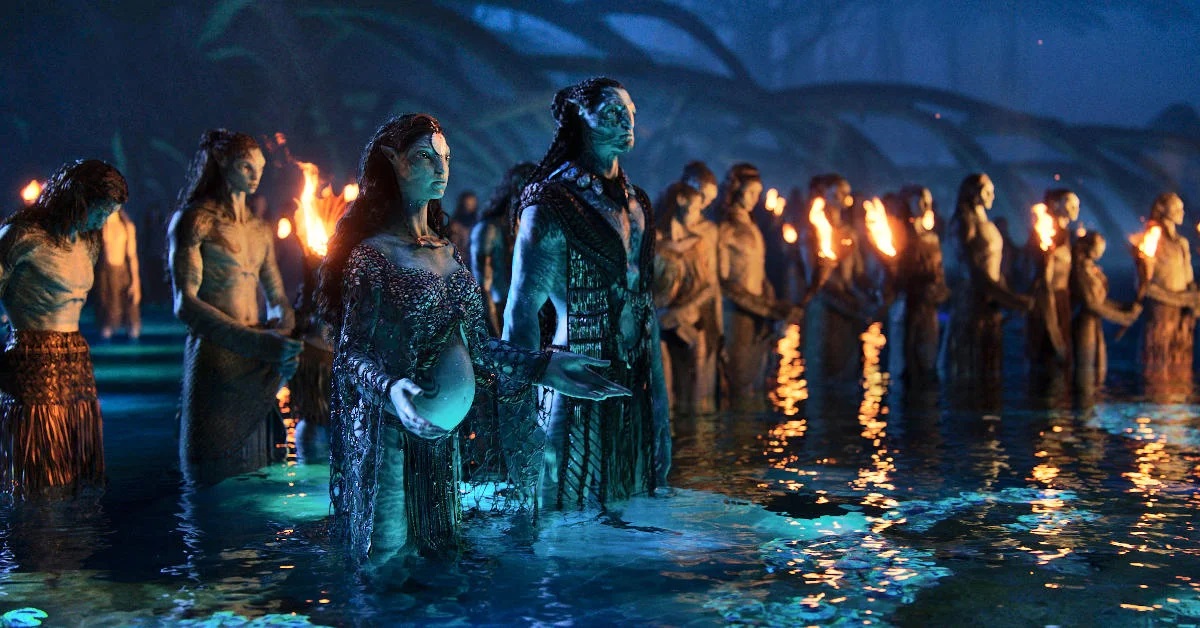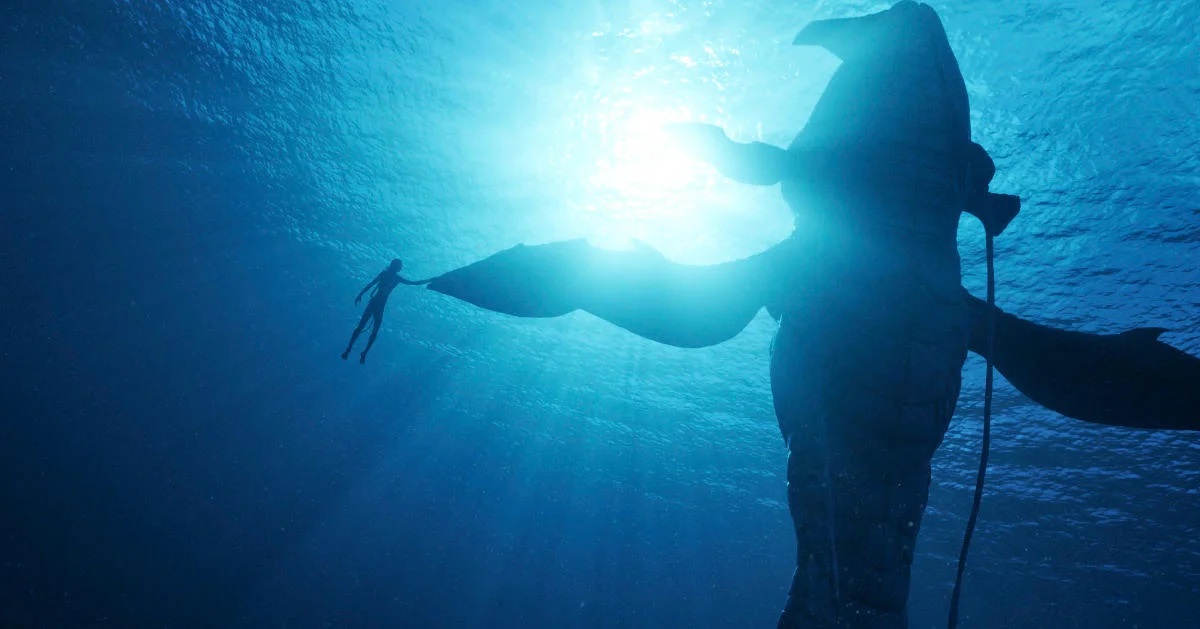Cinema has never seen anything quite like James Cameron’s Avatar for a number of reasons, but one of the most notable is the franchise’s status as a living, breathing oxymoron. The opening installment is the single highest-grossing movie ever made, and several re-releases have pushed it close to the $3 billion barrier, but it isn’t exactly held in universally high esteem.
The first chapter’s reputation has been taking a battering for the last 13 years, and yet people still paid to see it again and again in their numbers every single time it came back to theaters, and we’ve got a sneaking suspicion that the exact same will be true of sequel The Way of Water, which follows the template and precedent established by its predecessor to a tee, for better or worse.
First of all, there’s no other way of putting it; Cameron has changed the game yet again. On a technical and visual level, The Way of Water is nothing short of jaw-dropping. Very few films actively demand to be seen on the biggest screen possible in a specific format to yield the highest levels of enjoyment, but watching the long-awaited return to Pandora in HFR IMAX 3D is perhaps the single most immersive theatrical experience there’s ever been, and that’s not even being even gently hyperbolic.
The world-building, production design, motion capture, action sequences, choreography, visual effects, and sense of awe-inspiring scope, scale, and spectacle are utterly off the charts in terms of ambition, conception, and execution, but trying to bolt such game-changing visual wizardry onto a compelling story that can sustain a butt-numbing 192 minutes proves to be several steps too far.
One of the biggest (and entirely valid) criticisms of Avatar was the lack of substance to go with the style, as Cameron and his writing team found themselves lambasted for opting to indulge in a formulaic “chosen one” narrative that felt overly-familiar and evocative of countless other movies. While an attempt is made to broaden The Way of Water‘s storytelling horizons, it doesn’t quite come off the way you imagine the five credited writers wanted it to, which is a major disappointment given Cameron’s career-long desire to keep raising the bar on every level.
No offense to Sam Worthington, but Jake Sully has got to be viewed as one of the blandest and least interesting franchise protagonists of the modern era, and that takes a lot to accomplish when we’re talking about a blue alien that stands nine feet tall and rebelled against humanity after falling in love with the Na’vi way of life back in 2009.

Second time around, it feels as though Cameron was way too happy to simply rehash a number of story points ripped straight from the first Avatar, with minor cosmetic changes slapping on a fresh coat of paint that quickly turns stagnant. Once more, Jake and Zoe Saldaña’s Neytiri are forced to battle back against the invading forces of the Resources Development Association, except this time they’ve got a family.
The enemy is led by Stephen Lang’s Colonel Miles Quaritch yet again, but his memories have been downloaded into an Avatar following his death to give him an advantage in combat. Sigourney Weaver’s Grace Augustine somehow immaculately conceived a hybrid child named Kiri, giving the actress a chance to return. Adopted by Jake and Neytiri but often experiencing visions of her mother, she’s built up as a potentially key player in future Avatars, but we can’t stress how disconcerting it is to hear the 73 year-old star trying (and not at all succeeding) to pass herself off as a 14 year-old.
The family unit is rounded out by Britain Dalton’s Lo’ak, Jamie Flatters’ Neteyam, Trinity Jo-Li Bliss’ Tuk, and Jack Champion’s very human Spider, who really should have been called Plot Device based on how his contributions to The Way of Water continually play out in a forced and inorganic fashion that coincidentally and rather clunkily threads several major plot points together from beginning to end.
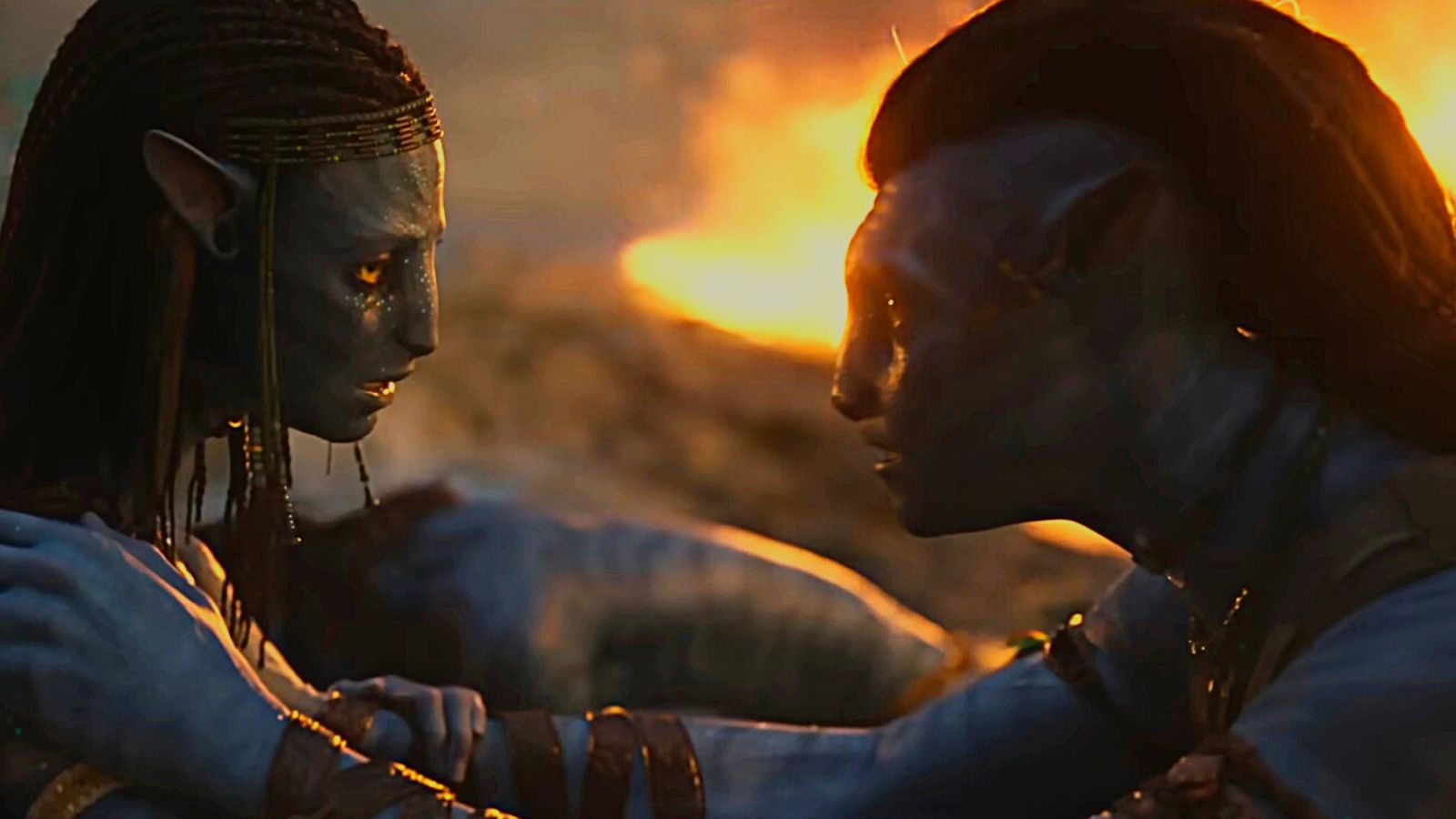
Forced on the run after being targeted by the RDA, the Sullys seek refuge with Cliff Curtis’ Tonowari, Kate Winslet’s Ronal, and their brood – who are the leading clan of the seafaring Metkayina. It’s a surface-level touch-up to the “Jake in the jungle” format of Avatar, except things are blue instead of green this time – with Cameron spending a little too much time luxuriating in his newfangled ability to deliver cutting-edge underwater mo-cap. Again, we can’t stress enough how mesmerizing it is to witness unfold on a gigantic screen, but it’s not a coincidence that things slow to an almost tedious crawl around the midway point.
That being said, when you’re left in a near-constant state of awe for close to three hours through a combination of eye-popping cinematography, landscapes so lush it’s mind-boggling to think they don’t exist anywhere outside of a computer, a surprisingly wholesome space-whale that was wrongly exiled for committing an atrocity, a showstopping third act climax that hammers home Cameron’s undisputed credentials as the king of the blockbuster set piece, and a constant feeling of knowing that you’re watching something that can never be replicated or duplicated by any other creative mind in Hollywood, such sins can be forgiven.
There’s a lot of sequel-baiting going on, too, with Cameron admitting he’s ready to draw a line under the franchise if the threequel under-performs, but it’s not as if he hasn’t written off before. Avatar: The Way of Water doesn’t quite deliver the best of both worlds, but when you find yourself gazing in wide-eyed wonderment at spear-wielding aliens riding amphibious flying lizards into battle against mechanized suits that can scuttle around like crabs, it’s nigh-on impossible not to get swept up in the director’s bespoke form of cinematic excess.
Fair
As an experience, 'Avatar: The Way of Water' is second to none. In terms of the storytelling, though, James Cameron has fallen into the exact same pitfalls as he did on the first visit to Pandora.
Review: 'Avatar: The Way of Water' is cinema at its most breathtakingly immersive, but severe story issues remain


